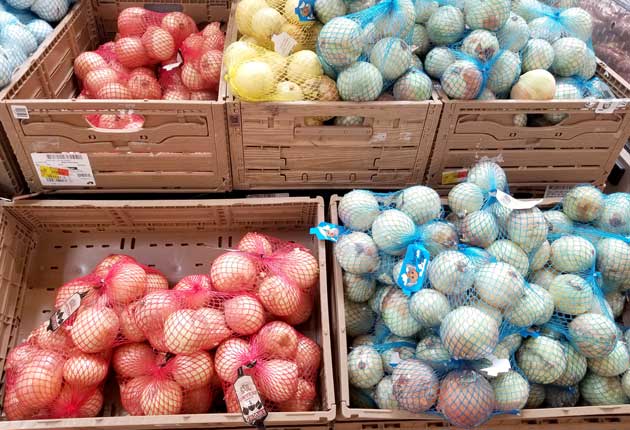|
Click to listen to this article
|
By John Harris, Owner and Founder, Paradigm Fresh
As we look back on our 2023-24 season, many factors led up to a market that likely will be unmatched for decades to come. As an active member of the National Onion Association, I have engaged in many high-level conversations regarding what to do about the vast amount of production that has been making its way into the U.S. and pulling down our U.S. markets, particularly in the spring and summer months.
This column will ruffle some feathers one way or another – and I’m okay with that – because the conversation is a double-edged sword. I don’t have enough space to go into Mexico’s deliberate mishandling of the water sharing treaty between the U.S. and Mexico, which is helping facilitate mass production out of Chihuahua. I have a lot of friends in this industry who pack and market Mexican products, and their livelihood depends on that production, but I have questions and points of my own that I feel need to be discussed and addressed.
To begin with, I have often complained about the production levels that tend to cross into the U.S. and completely destroy what has the potential to be a very good marketing opportunity in the U.S. After what transpired this year, I had to check my thought process about this situation. As we know, when Hurricane Hilary destroyed much of the local Mexican production last August, Mexico was forced to buy a ton of U.S. product to fulfill local needs. Not only did Mexican buyers buy heavily, but they altered a market that was selling under production costs and created enormous profits for the open market production. They raised the market nearly single handedly and then continued to pay high prices for months as U.S. producers profited tremendously off Mexico’s misfortune from the hurricane’s devastation of local Mexican production.
What occurred to me is that we do an awful lot of complaining about Mexican product crossing our borders and bringing down markets for our local producers, which isn’t wrong. Still, it seems to have been lost on a lot of folks that if it weren’t for Mexico importing so much of our U.S. production last year, we would never have had the marketing opportunities that we were blessed to have for months, and I’m not sure that is the right way of thinking, either. It can’t be a one-way street.
This brings me to a second point I believe should be considered regarding Mexican production. I market a lot of onions to Canada throughout the year. Canadian retailers are loyal to Canadian produce 12 months out of the year. They buy products out of the U.S. that cannot be produced locally, but they buy locally first and do not deviate. This isn’t driven by price but by an unwavering commitment to buy local first at all times.
If U.S. retailers and wholesalers committed like this to U.S. farmers, it would immediately stop the vast importation of Mexican onions. The commitment must come from the retailer first, and an unwavering commitment must be made to U.S.-grown products. Until U.S. retailers make that commitment, nothing will change, be it onions or any other product. But if there was a genuine commitment from U.S. retailers, wholesalers and consumers to U.S.-produced onions and food in general, and the emphasis was on where it was grown rather than how much it cost, this conversation changes completely.
The can of worms that this idea opens is far bigger than this article will allow me to discuss. To begin with, though, a hardline commitment to U.S.-grown products is likely to raise food prices for consumers. The U.S. has the safest and most top-notch grown produce in the world, and committing to the U.S. farmer should be easy. But it comes at a price to the consumer that may not be highly agreeable in many circles in Washington, D.C. Again, this is another talking point for another day.
To conclude, the U.S. farmer should always have our highest level of support in this country in terms of our food supply. With that said, we should be careful how we view Mexico’s vast production that comes into the U.S. after the imports we sent to Mexico this last year raised all boats for months and months.
There are many ways to find a viable solution to the questions presented, such as starting a dialogue in our industry and continuing to talk about how we begin the process of creating a solution.
Thank you as always and God bless U.S. farmers. They are and will continue to be the backbone of this country.



